2018 is on track to be Gugu Mbatha-Raw’s career-defining year – Stylist meets the actor with plenty to shout about.
As the entertainment director of Stylist, it’s easy for me to say someone is an important name to know. Someone you should commit to memory and follow their career path because what they are doing is versatile, skilled and barrier-breaking. It’s not often the Queen agrees with me (to my chagrin). But this time the Queen does agree with me, recently awarding Gugu Mbatha-Raw – that aforementioned name to know – with an MBE for services to the arts, an honour she received a few weeks ago at Buckingham Palace: the royal seal of approval in its purest form.
Mbatha-Raw, 34, is an actor who has been working hard for years, gradually increasing her profile, proving and improving her talents. It’s interesting that 2018, a momentous year for women, is the year that she will be catapulted into the big time with her ability to command whichever screen she is on. I suspect it’s also of note that she’s an actor who has largely worked with female directors on her biggest roles (except 2016’s sublime Black Mirror series three episode San Junipero), including her breakout role in 2014’s Belle, directed by Amma Asante, and Beyond The Lights by Gina Prince-Bythewood the same year, which both centre on women who want – need – their voices to be heard in very different confines.Currently, Mbatha-Raw can be seen all over Netflix in the recently released science-fiction film The Cloverfield Paradox and Irreplaceable You, a love story about a woman diagnosed with terminal cancer. It pains me to say that while neither film quite manages to live up to its promise, she is nonetheless magnetic in both, providing empathy and poise and making each worth watching. More importantly there’s this month’s Disney fantasy adventure, A Wrinkle In Time, based on the eponymous 1962 novel by Madeleine L’Engle, that puts her into a whole new stratosphere alongside Oprah Winfrey, Reese Witherspoon and Mindy Kaling. Culturally, the film is incredibly important: it’s directed by Ava DuVernay, the first African American woman to helm a $100 million (£72 million) film, and has at its centre a young woman of colour, played by 12 Years A Slave’s Storm Reid, who travels on a mission through space and time to find her father (Mbatha-Raw plays her scientist mother). The likes of Beyoncé were at the film’s February premiere in Los Angeles.
Dress, £1,115, Sportmax
Coming up there are films that will cement her standing as she appears front and centre alongside Hollywood’s biggest stars in significant projects. In Motherless Brooklyn, due in 2019, she stars alongside heavyweights Edward Norton and Bruce Willis in the story of a lonely private detective in the Fifties. She’s also, excitingly, attached to the film adaptation of Roxane Gay’s debut novel Untamed State, in which she’ll again be directed by Prince-Bythewood.
With so many projects on the go, the actor now lives in Los Angeles but grew up in Witney, Oxfordshire with her English mother after she separated from her South African husband when Mbatha-Raw was a year old. At Stylist’s photoshoot, she is properly fun: loving the idea of graffiti-ing and getting the artist on set to show her how to do it properly. “Growing up in a not-remotely-urban environment, there wasn’t much opportunity for graffiti in Witney,” she laughs. Later at our interview, which takes place the day after meeting Prince Charles to receive her MBE, she’s equally buoyant, displaying a childlike excitement about the button you can press to get a waiter to bring you coffee in the Covent Garden Hotel. Drink ordered, we start talking about all the things that are on her mind right now…
On having Oprah in her corner
“Oprah Winfrey was a champion of Belle and is an incredible thinker and leader. We didn’t have any scenes together in Wrinkle, unfortunately, but she did come and have a chat in my trailer one day; it was lovely to see her, she’s so wonderful and very, very grounded. She’s a brilliant orator and has a centre that is authentic, and that is why it touches people – you feel like it’s coming from the right place. Her spiritual centre is also something that inspires me. When Belle came out, she was very helpful in terms of being able to appreciate things. She was the first person to introduce me to the concept of a gratitude diary, and – without sounding super saccharine – it is a good way to keep perspective and not become too bratty. I write mine when I get on a plane. I take a moment before taking off to think, ‘OK, here we are and where am I going and where have I come from.’”
Dress, £160, Stine Goya; shoes, £625, Rupert Sanderson
On thinking for herself
“I’ve never really been a follower. Perhaps being an only child or having parents from two very different cultures, you’re forced to see things from different perspectives and understand that there are many ways to view the world. I think that helps you think for yourself. It’s something you have to nurture as well; your choices are what you have in this job. Gina Prince-Bythewood, who directed Beyond The Lights, always used to say that when you’re making a film, the reason you’re doing it has to be bigger than you. You start off acting or doing plays at school because you love it, then you get the luxury of choice and then you think, ‘OK, what is the reason, why am I doing this?’
When choosing roles, I’m often thinking about how it’s going to help culture evolve. We’re all here to contribute in that little marathon. It is a responsibility if you’re asking people to pay money to look at your face for two hours on a screen – so you better have something interesting to say.”
On receiving an MBE
“I don’t know who nominated me for it or how I got it; maybe someone will let me know in the future! I’d never been to Buckingham Palace before. My parents came with me and were so excited – my mum was being a typical mum and didn’t want us to be late, and then our taxi driver dropped us in the wrong place. My dad had to limbo under some barriers on the way in. We were scrambling in like complete imposters, but it was amazing and there was so much energy. You’re separated from your guests, which I didn’t realise would happen, and taken to a room with all the other people being awarded, which for me included Pamela Butcher, the 88-year-old table-tennis world champion. When you go up to receive the MBE itself there’s this etiquette where you have to curtsey to Prince Charles, who was doing our ceremony, and address him as ‘Your Royal Highness’ first and ‘Sir’ thereafter. It’s a huge honour and wonderful surprise, but it won’t change how I live my life on a day-to-day basis.”
Coat, £4,930, Calvin Klein
“I’ve always been interested in art and how it represents our culture. I love taking life-drawing classes, but I don’t get to do as much of it as I’d like because I’m quite all or nothing. I was crazily into the Pre-Raphaelites when I was about 17 and loved the painting of Ophelia at Tate Britain – I would go and just stare at it. Then when I was doing my art A-level, it was when all the Young British Artists such as Jenny Saville – who had that very fleshy painting style, which I liked – were huge.
It was actually, at a certain stage in my life, a toss-up between pursuing fine art or acting. I spent the whole of my A-levels in the art block; I loved it, but it was very intense. As much as I loved painting and drawing, it made me very introspective. The thing I loved about theatre was that it made me engage with other people.
Growing up as an only child and then getting into theatre brought me out of myself. I still love going to galleries – I’ve been to The Broad, which is the newest one in LA, and I also love the LACMA. I was just in New York at the Met this weekend, which is amazing because it’s immense. But in America it’s so expensive [to visit art galleries]. “Being able to just wander into a gallery in London was hugely inspiring, and I think it should be [free] for everybody.”
On finding spiritual space
“I’d definitely describe myself as spiritual. I’ve done yoga for about 12 years and I find it physically engages me. I was first introduced to meditation a few years ago through an online series with Oprah and Deepak Chopra [through the Chopra Meditation Center]. To be able to know what the tools are and have access to them to ground yourself is so important. This week I was doing a camera test in New York, then on Monday I went to Buckingham Palace, I’m flying to LA this afternoon… if I didn’t have stability, I’d go crazy. It’s important to know there’s something just for you and [a way to] get back to neutral that’s not about achieving anything. The word ‘yoga’ means ‘union’ in Sanskrit; the idea of union within yourself when you’re always playing different characters, and turning up different elements of your personality, is hugely important, especially for longevity.
This can be a bruising business, and a lot of people either give up or have a meltdown. For me it’s essential to have these tools.”
Coat, £4,930, Calvin Klein
On her cultural leanings
“I love tragedy – it’s one of my favourite genres, the dark, deep places – but I think you’ve also got to know at the end of it all why you went through it and feel that there is some potential for hope. I don’t like everything to be shiny and perfect with a happy ending; if you’re going to go on a journey with somebody, you want to at least feel.
I really loved Roxane Gay’s books Bad Feminist and Hunger – I found the latter an incredibly difficult but inspiring book. It was challenging and emotional and raw and honest. I read a lot of spiritual books; I’m totally not afraid of the self-help section. I’ve read all of Brené Brown’s books [The Gifts Of Imperfection, Daring Greatly, Rising Strong, and Braving The Wilderness] – I love her, going back to when I saw her 2012 Ted Talk a couple of years ago. If you’re dealing a lot with things that are to do with emotions and storytelling, then unpicking things in a more analytical way is using a different part of my brain. It’s good to exercise it.”
On her daily ritual
“I have one cup of coffee a day, so I like it to be a good one – a white Americano. I got an espresso machine as a gift and thought, ‘I’m never going to use it – I like having coffee out’, but actually it’s brilliant. Although one thing I can’t do is frothing the milk. There’s a place in LA I sometimes go to called Intelligentsia – one of those ‘coffee snob’ places. I was talking to a guy who was training there and he was like, ‘Oh no, I’m not on to milk yet. Coffee is one thing, but milk – you have to be here for a few months before you get to know that.’ I was like, ‘Are you serious?’”
On keeping intersectionality front and centre
“[With A Wrinkle In Time] Ava [DuVernay] is the first woman of colour to be given a budget of more than a hundred million dollars to direct a film. I was so inspired to work with her. I think that is worth talking about, because it’s a first. While we’re still having these first moments, it’s a good reference point as to where we really are as opposed to where we think we are. Where is the representation? Constantly questioning that is so important. Thinking about who is not in the room is something that came up in the first Time’s Up meeting I went to in LA. It’s so crucial to ask, ‘What have we missed in this picture on every level?’ From who’s written the script and who’s directing, to who is in front of the camera. It’s up to all of us on every level?’ From who’s written the script and who’s directing, to who is in front of the camera. It’s up to all of us.
A Wrinkle in Time is in cinemas from 23 March.

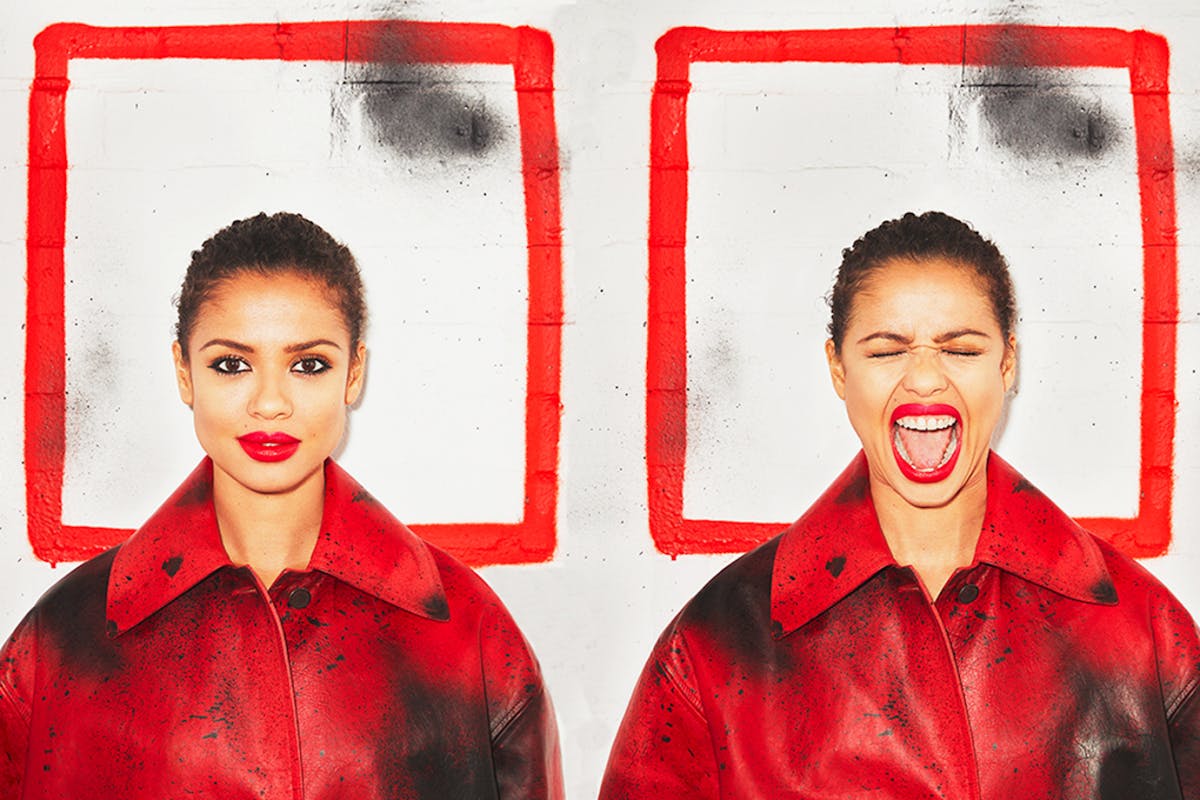
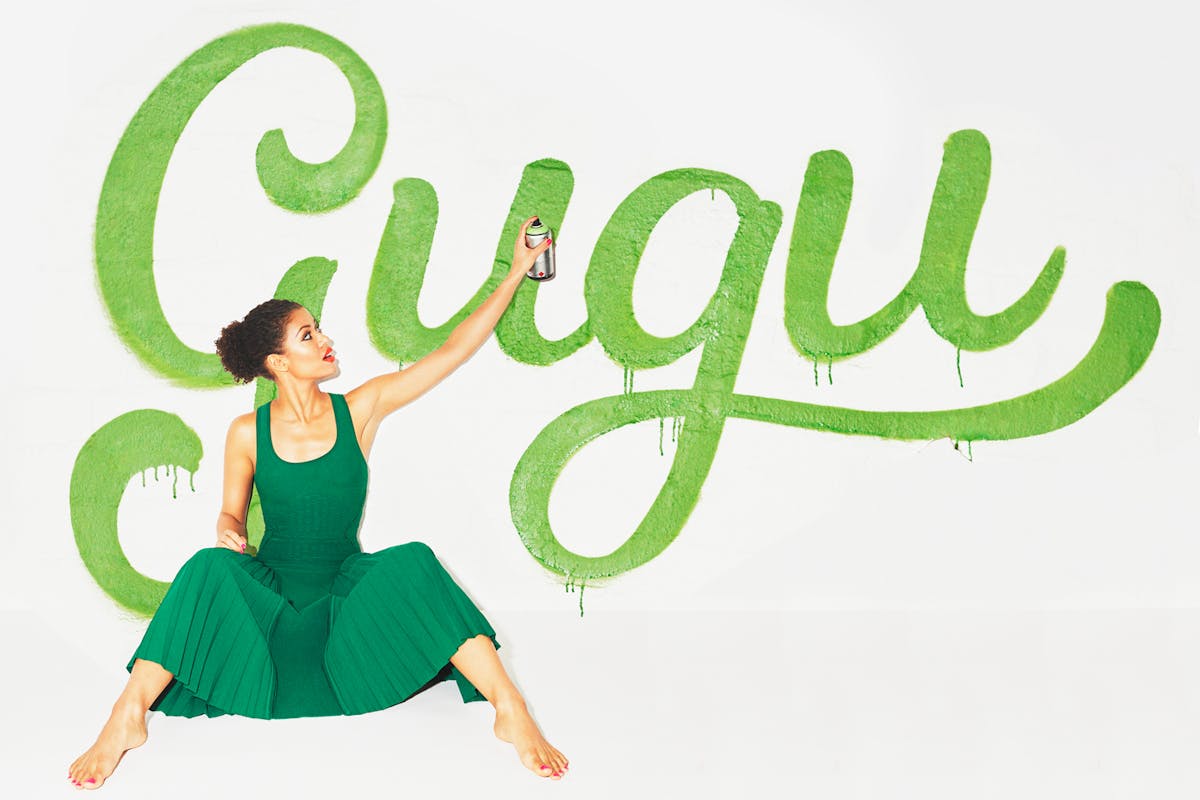
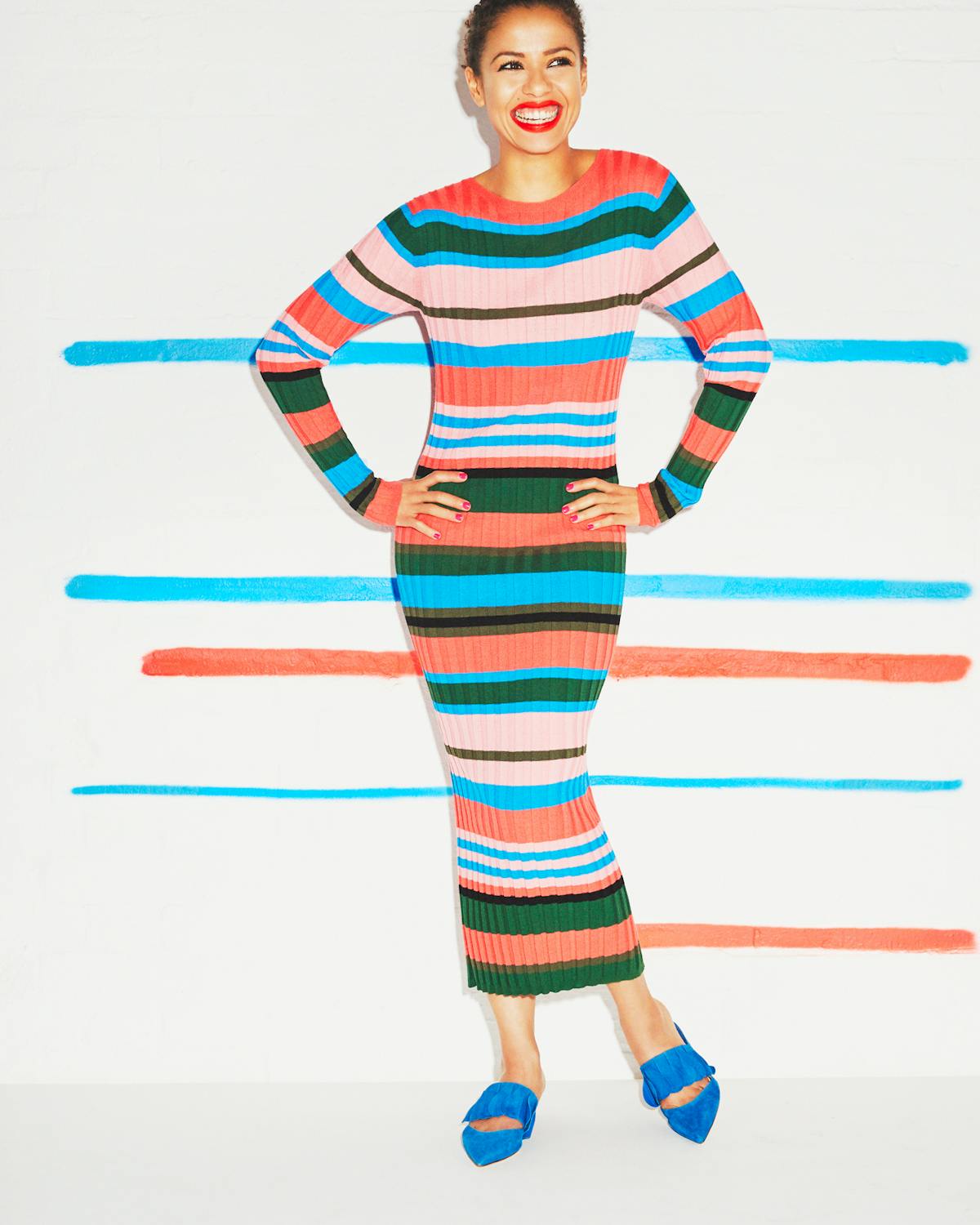
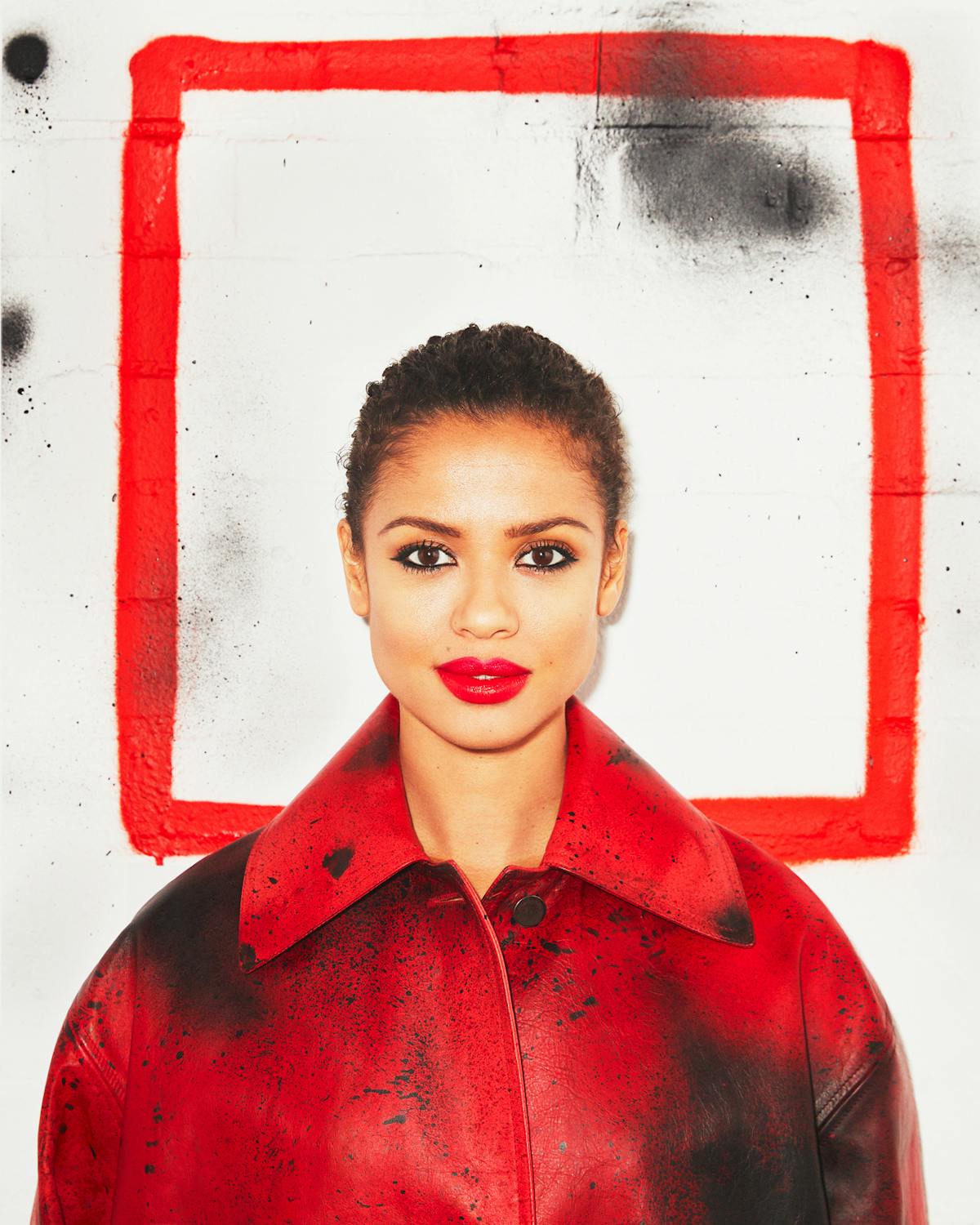
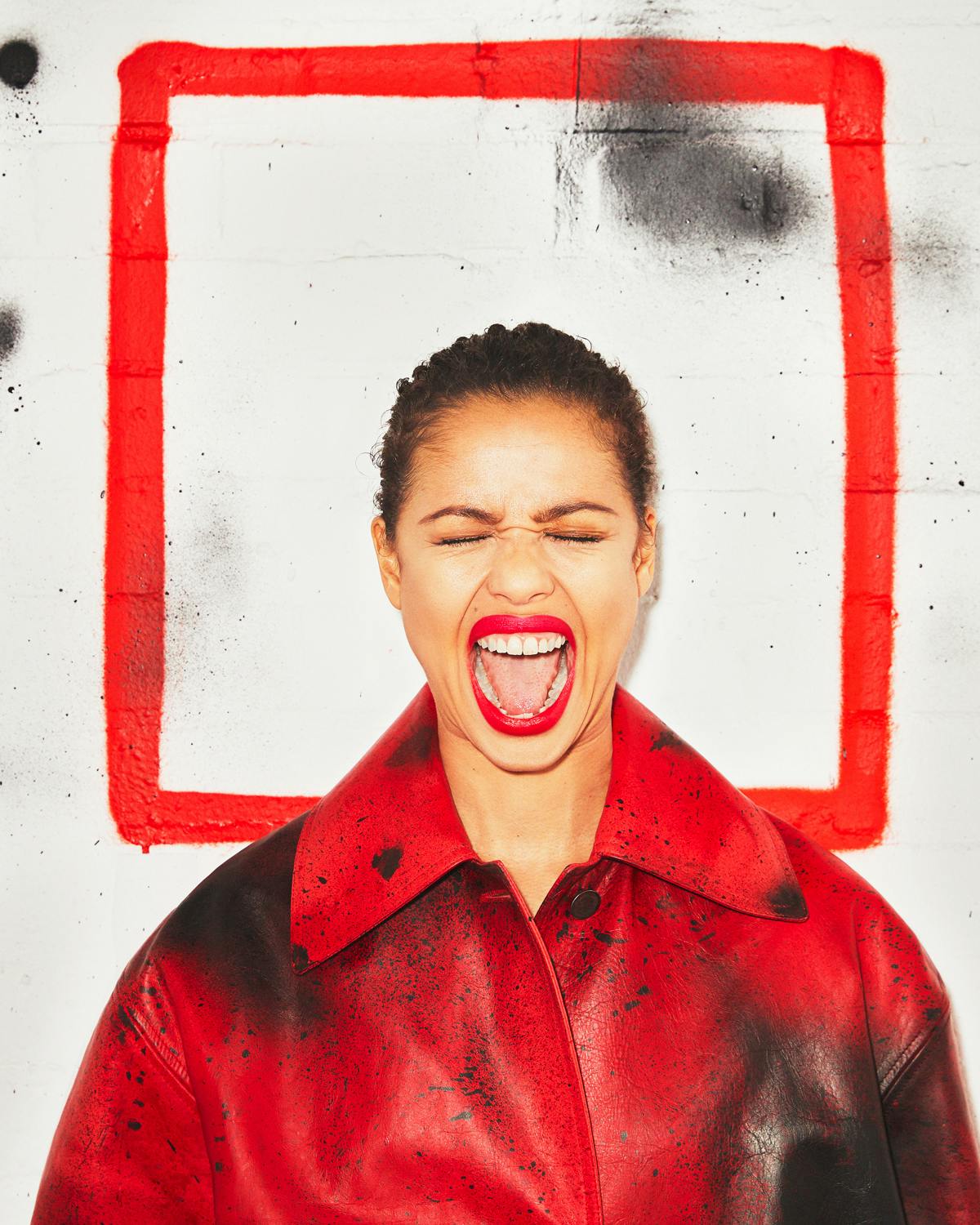
No comments:
Post a Comment